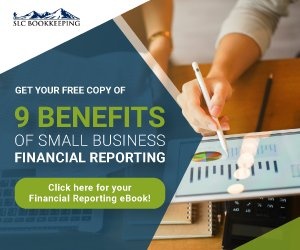QuickBooks Tip: How to Book Fixed Assets
Every now and again a company needs to post a purchase to a fixed asset account to ensure a CPA depreciates it at year end. Some times the fixed asset is merely a credit card purch
ase for an item such as a computer but some times the asset is for a much larger item such as a car or a piece of equipment that your business had to take a loan on. Depending on either of those situations I go about booking the fixed asset differently. Before we begin always talk to your CPA about fixed assets as I'm about to touch upon.
Understand this before even trying to book a fixed asset, talk to your CPA about your fixed asset threshold or the amount they consider to be depreciable instead of an expense. If your CPA sets this threshold at $500 this doesn't mean all purchases above $500 are a fixed asset though, you need to differentiate the correct purchases.
Fixed Asset Rule of Thumb
- If the purchase was made for a new piece of furniture, equipment, or building improvements to your place of business then you can consider these to be a fixed asset and should be booked accordingly. For instance you buy a couch, a computer, or put a new water heater into the building.
- If the purchase was for the repair of equipment, furniture, or building improvements an expense account should always be hit. For instance if a couch has been repaired, a shopping
cart brought back to life, or the water heater was just repaired book these costs to repairs or another kind expense account that you see fit.
In the first examples I will typically book all of these to a fixed asset account called Furniture & Equipment. Some people (and CPA's) may also like to further differentiate this with a Lease Hold Improvements account but most that I've had the pleasure of working with just recommend keeping it all to one account.
Large Fixed Assets
Some times a large fixed asset such as a car, a massive piece of equipment integral to the day to day of your business or the purchase of property might warrant having its own fixed asset account. Most small businesses I work with l will typically book equipment loans on a separate account entitled the name of the asset such as Honda Civic or Industrial Bolt Knocker.
I'll take the time right now to point to an older blog post that explains how to book a mortgage in QuickBooks which works in the same way as purchasing a large piece of equipment with a loan. The second paragraph explains the basics of booking a general journal entry to credit the long term liability (the total loan of the equipment) and debit the fixed asset account you've named after the equipment.
Accumulated Depreciation & Depreciation Expenses in QuickBooks
These two accounts come from your CPA at year-end. We'll use the example of a $25,000 car. With a $25,000 car they do two things...
1.) Accumulated Depreciation (asset account) depreciates your fixed assets. Your CPA may decide to depreciate your $25,000 car for 5 years. If this is the case the CPA will credit the Fixed Asset account Accumulate Depreciation for $5,000 ($25,000 / 5years). This will now lessen Fixed Assets by $5,000 after one year to $20,000.
2.) Depreciation Expense (expense account) realizes the depreciation expense of the asset to your business's profit & loss. The CPA would offset the $5,000 from Accumulated Depreciation by booking the $5,000 to Depreciation Expense.
By booking fixed assets throughout the year you've now exponentially cut down on the time required at year-end to search for possible items that might be fixed assets. Your CPA will also greatly appreciate it to and so will your bank account for that matter.


Comments